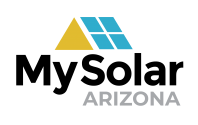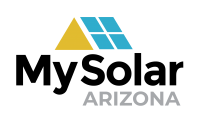
The Renewable Energy Debate: Comparing Wind And Solar Power
The debate surrounding renewable energy has been raging for decades. While some concerned citizens have opted to switch to renewable energy sources for their home and business needs, there is still a great contentious debate surrounding the subject. Many people are divided over which renewable energy source is best: wind or solar power? Let’s break down the facts and discuss the advantages and disadvantages of both the wind and solar power.
Advantages of Using Wind Power
- Wind energy is a very affordable renewable energy source. Wind turbines can be relatively inexpensive to build and maintain, making them cheaper to run in the long term than traditional power sources.
- The wind is a clean energy source. Wind turbines do not require any burning of fuel and they do not emit pollutants into the environment.
- Wind turbines are also quite reliable. Although wind power varies from day to day, it is less prone to intermittent power outages than solar panels.
- Wind energy is abundant. Wind turbines can be placed almost anywhere and as there is no shortage of wind, wind turbines are a viable alternative to traditional power sources
Disadvantages of Using Wind Power
- Wind energy is not always consistent. As the wind is constantly changing in intensity, wind turbines cannot always provide a steady power source.
- The construction of wind turbines has environmental impacts. Building a wind farm destroys habitats and affects the migration routes of birds and other animals in the area.
- The turbines are noisy. The noise from the turbines can be annoying for those living near them and can affect the quality of life in the area.
- The turbines can be dangerous. Although they are designed to be safe, the moving blades of a wind turbine can present a hazard to birds and other wildlife.
Advantages of Using Solar Power
- Solar energy is clean and renewable. Solar panels do not emit any pollutants into the environment and the sun is a never-ending power source.
- Solar energy is cheaper than other power sources in the long run. Solar panels require an initial investment, but after installation, they become a relatively cheap way to generate power.
- Solar energy is reliable. The sun is always up and solar panels can generate power even on cloudy days.
- Solar energy has a low environmental impact. Solar panels are small in size and do not require a large land area for installation, making them an unobtrusive source of power.
Disadvantages of Using Solar Power
- The initial investment in solar panels can be high. Solar energy systems are quite expensive and require a significant upfront investment.
- The efficiency of solar panels varies greatly. Solar panels can be affected by shading and other environmental factors, so their efficiency can be inconsistent.
- The location of the solar panels affects their output. Solar panels need direct sunlight to generate power, which is limited in high-cloud and overcast areas.
- Solar panels require maintenance. Solar energy systems require regular maintenance and inspection to ensure they are generating power at optimal efficiency.
Clearly the debate of wind vs. solar power is a complex one with no easy answer. On one hand, wind energy is much cheaper and more reliable in the long run. On the other hand, solar energy is more efficient in terms of generating power and has minimal environmental impact. The decision of which renewable energy source to use depends on the situation and individual needs of the business or homeowner.

